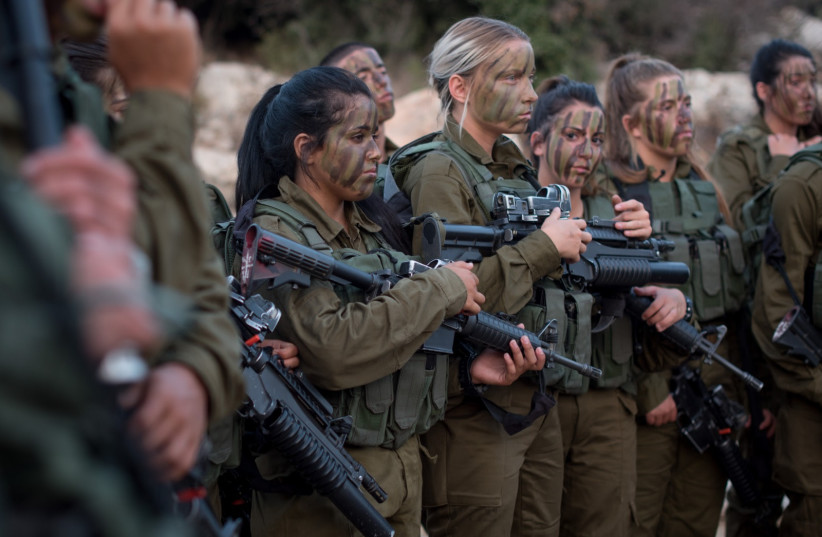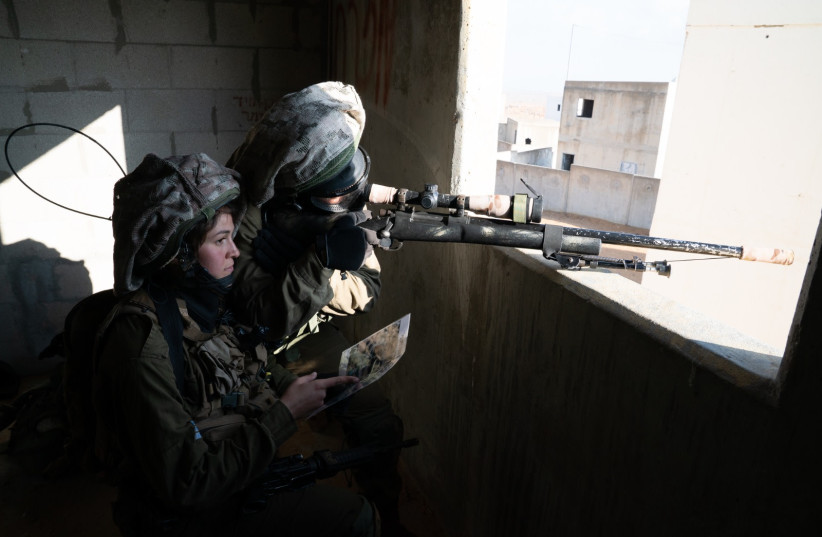MICHAEL STARR

The integration of female soldiers into Israel’s combat infantry units, some elite Special Forces and certain armored units has been postponed due to the physiological difference between men and women, the IDF told the High Court of Justice on Monday in response to petitions by women seeking to join Special Forces.
The IDF has conducted several pilot programs for the integration of women in combat positions, upon which it said the military often bases its decisions. From 2020-2021, it conducted an analysis of combat positions for women, a follow-up to a previous study that determined there was a low probability for women being able to fulfill the physical requirements of certain units, such as armored and heavy infantry. The IDF is conducting further analysis and review of the issue.
The ability to carry heavy weight, in particular being repeatedly burdened with heavy backpacks for long distances, subjected women to a significantly greater risk of injury than men, the IDF said.
Which IDF combat units can women join?
The analysis found that some less weight-intensive combat roles within the infantry brigades, such as in certain mortar teams, could be met by dozens of female candidates each year.
The IDF does expect that more elite units would be made available to women, based upon physiological criteria.

In March, the selection process for the 669 Search and Rescue and Yahalom Combat Engineering Corps were opened to women, with 12 of them being recruited for the latter. This program would continue as planned, according to the IDF’s court filing. A November draft would see two teams of 15 female soldiers enter the screening process. The first female recruits for 669 were expected for the December draft.
The petitions to the High Court were filed by a candidate in the pilots’ course who dropped out in 2020 and later became an officer in a classified air force position. However, she requested that she be allowed to apply for a Special Forces unit. The IAF pilots’ course is a prestigious program, and while most do not complete the lengthy process, those who drop out of it are often assigned to other elite units.
Another petition saw an officer in an artillery unit and later in intelligence request the ability to apply for the special Duvdevan urban commando unit. She had similarly dropped from the prestigious naval officers program, which is often assessed through general Special Forces try-outs.
The IDF’s arguments about restricted access to the combat positions were qualified by 90% of army positions being equally available to men and women. A fifth of the army’s combat positions were filled by women, including some special combat units. The military said that this was the result of decades-long expansion of the availability of combat roles to women.
Some border defense tank units do have women in their crews. There are also mixed gender light infantry brigades.
Gender inclusion and security NGO Forum Dvorah decried the IDF’s position, saying that it didn’t comply with the law and discriminated based on gender. However, it welcomed the opening of some special forces to women, and the establishment of some professional standards unique to women.
“The decision to reject the integration of women into armored units is especially outrageous, even though the IDF itself has testified that there is a possibility of their integration,” said the Dvorah Forum in a statement on Monday. “The main question remains – why does the IDF not allow women to serve according to their abilities and continues to block them from options just because of their gender?”
The NGO Breaking Equality argued that the IDF’s position shows that “it has been proven once again that there are places where women cannot serve. The objective of the army is to win battles.”
No comments:
Post a Comment